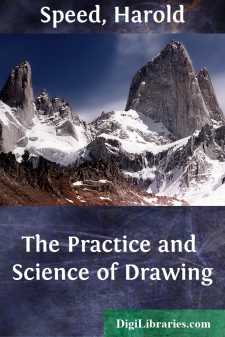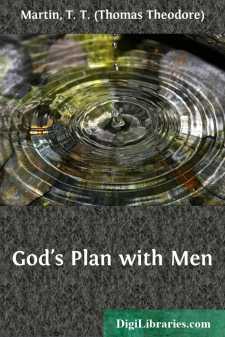Non-Classifiable
- Non-Classifiable 1768
Non-Classifiable Books
Sort by:
RELATING TO CHIEF INSPECTOR OF MINES AND DISTRICT INSPECTORS OF MINES. Mining Laws of Ohio Sec. 898. Repealed. (Appointment of chief.) Sec. 899. [Qualifications of chief inspector of mines.] No person shall be appointed chief inspector of mines unless he has a competent knowledge, insofar as such sciences relate to mining, of chemistry, the mineralogy and geology of this state, a practical knowledge of...
more...
The Plan of the Book. In the preparation of this book the author has had two great plans in mind: To prepare a work which will enable any person, who can speak to a class or an audience, to give a helpful, inspiring illustrated talk; to place in the hands of parents everywhere a book to enable them to teach the children a simple, fascinating method of drawing and, at the same time make the great truths...
more...
According to Plato's famous myth, two gifts of the gods equipped man for living: the one, arts and inventions to supply him with the means of livelihood; the other, reverence and justice to be the ordering principles of societies and the bonds of friendship and conciliation. Agencies for mastery over nature and agencies for coöperation among men remain the two great sources of human power. But...
more...
by:
Harold Speed
IINTRODUCTION The best things in an artist's work are so much a matter of intuition, that there is much to be said for the point of view that would altogether discourage intellectual inquiry into artistic phenomena on the part of the artist. Intuitions are shy things and apt to disappear if looked into too closely. And there is undoubtedly a danger that too much knowledge and training may supplant...
more...
by:
Herbert Hoover
CHAPTER I. Valuation of Copper, Gold, Lead, Silver, Tin, and Zinc Lode Mines.DETERMINATION OF AVERAGE METAL CONTENT; SAMPLING, ASSAY PLANS, CALCULATIONS OF AVERAGES, PERCENTAGE OF ERRORS IN ESTIMATE FROM SAMPLING.The following discussion is limited to in situ deposits of copper, gold, lead, silver, tin, and zinc. The valuation of alluvial deposits, iron, coal, and other mines is each a special science...
more...
Are There More Worlds Than One? Our world is large enough to excite our interest and invite our study until we close our eyes in death. Yet there are countless other orbs scattered through the solar system and throughout the vast stretches of the starry heavens. Some of these worlds are smaller than ours, but the majority of them are hundreds or thousands of times larger. Looking away from our solar...
more...
A hygiene that claims to be new and of the greatest practicality, and certainly revolutionary in its application, would seem to require something of its origin and development to excite the interest of the intelligent reader. Methods in health culture are about as numerous as the individuals who find some method necessary for the health: taking something, doing something for the health is the burden of...
more...
INTRODUCTION "Come now and let us reason together, saith the Lord."—Isaiah. "If any man willeth to do his will, he shall know of the teaching, whether it is of God, or whether I speak from my self."—Jesus. "And ye shall seek me and find me when ye shall search for me with all your heart."—Jeremiah. "Then shall we know if we follow on to know the Lord."—Hosea....
more...
INTRODUCTION Richard Sherry’s A Treatise of Schemes and Tropes (1550), a familiar work of the Renaissance, is primarily thought of as a sixteenth-century English textbook on the figures. Yet it is also a mirror of one variation of rhetoric which came to be called the rhetoric of style. As a representative of this stylistic school, it offers little that is new to the third part of classical rhetoric....
more...
The Roman Empire in the first century presents the most revolting picture of mankind to be found in the pages of history. Society founded on superior force, on the most barbarous cruelty, on crime and mad profligacy, was corrupt beyond the power of words to describe. Rome ruled the world, but was also its ulcer, and the horrible monster, Nero, guilty of all hideous and revolting crimes, seems a fit...
more...











